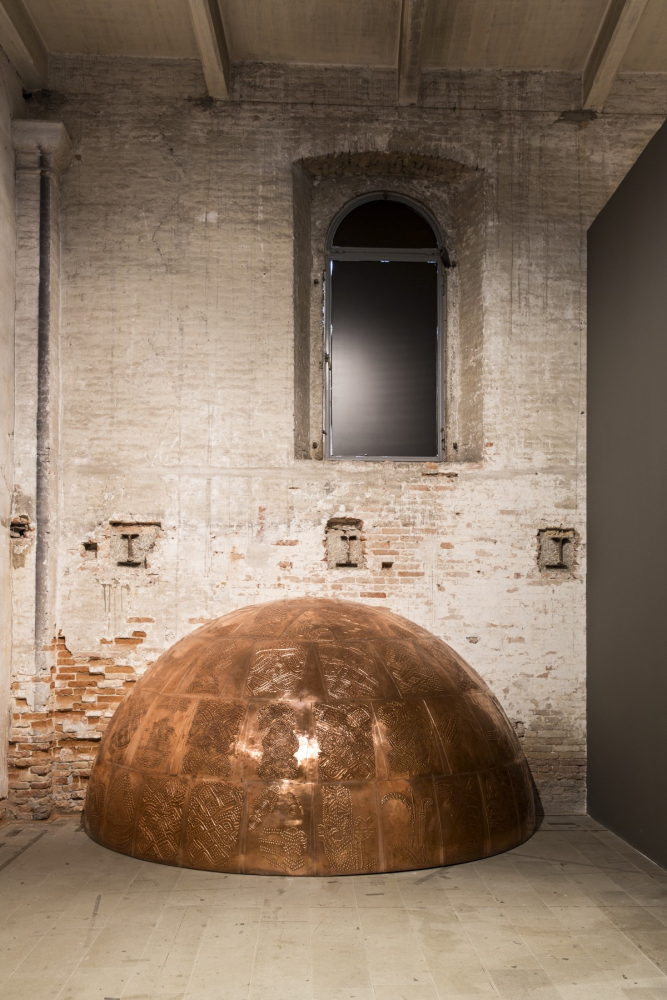The Other Memorial
- 2015
- installation
- All the World’s Futures, 56th International Venice Biennale
Sammy Baloji began his investigation into the paradigmatic rupture of colonialism and the image in southeastern Katanga. After graduating with a humanities degree from the University of Lubumbashi, Baloji decided to specialize in photography. Realizing the lack of visual documentation of his country, he turned his attention to the cultural, industrial, and architectural heritage of the Congo. His process involves merging an urban, political, and anthropological cartography of colonization’s history. It has been more than a decade since he first entered into dialogue with the archives of the General Mining Society factories in Lubumbashi, yet traces of the past continue to galvanize his exploration of the present.
Assembling archival images and photographs from divergent sources, Baloji’s practice has interrogated questions of representation and identity as they relate to the collective memory and resistances of Congolese society. Drawing upon various historical collections, his practice elaborates a history excavated from ethnographic, anthropological, scientific, and even zoological documentation of life during the time that the Congo was under Belgian rule. Whether he formulates his images by capturing the appropriated modernist architectures of industrial Katanga or by tracing racial segregation implemented under the pretext of modernizing sanitation during its colonial administration, Baloji remains committed to the historical condition. His practice constitutes a personal therapy that questions the official histories against the traces of memory, drawing on events such as the Belgian scientific expedition to Katanga and the deconstruction of the local industry during independence.
In Baloji’s work, the recent wars that have ravaged the region are addressed as evidence of postcolonial disillusionment and state failure, while the broader geopolitical connections unfold into a wider narrative in which alternative genealogies of disorder reveal the complexity of colonization’s history. This is apparent in the anthropological classification of types, under Western imperialism, that set upon dehumanizing the black body. Baloji, in turn, subverts that system by liberating the narratives of those silenced by history. For the Biennale di Venezia, Baloji has worked on ethnographic archives that document the scarification patterns of different Congolese communities, which he has transcribed onto the surface of his latest work, a cast copper sculpture titled The Other Memorial.
This work references the entanglement of colonial legacies and traditions that bind Africa and the West. In line with Baloji’s ongoing research, the presentation will speak to the traumas and hopes, contradictions and conditions, of our postcolonial reality.
